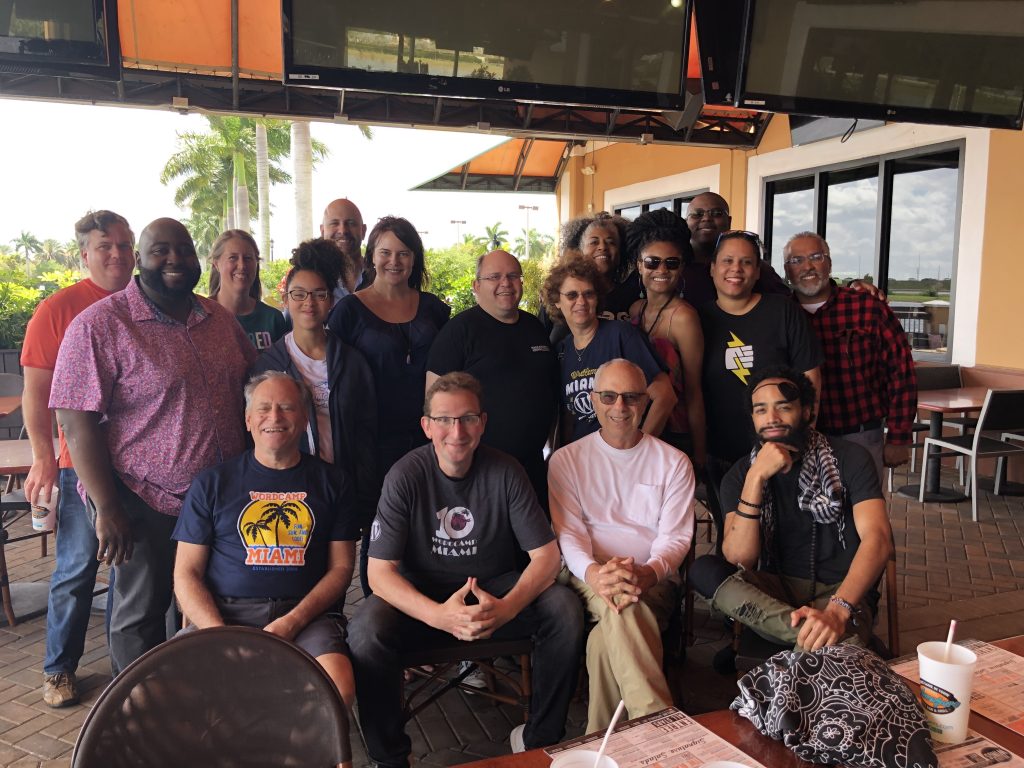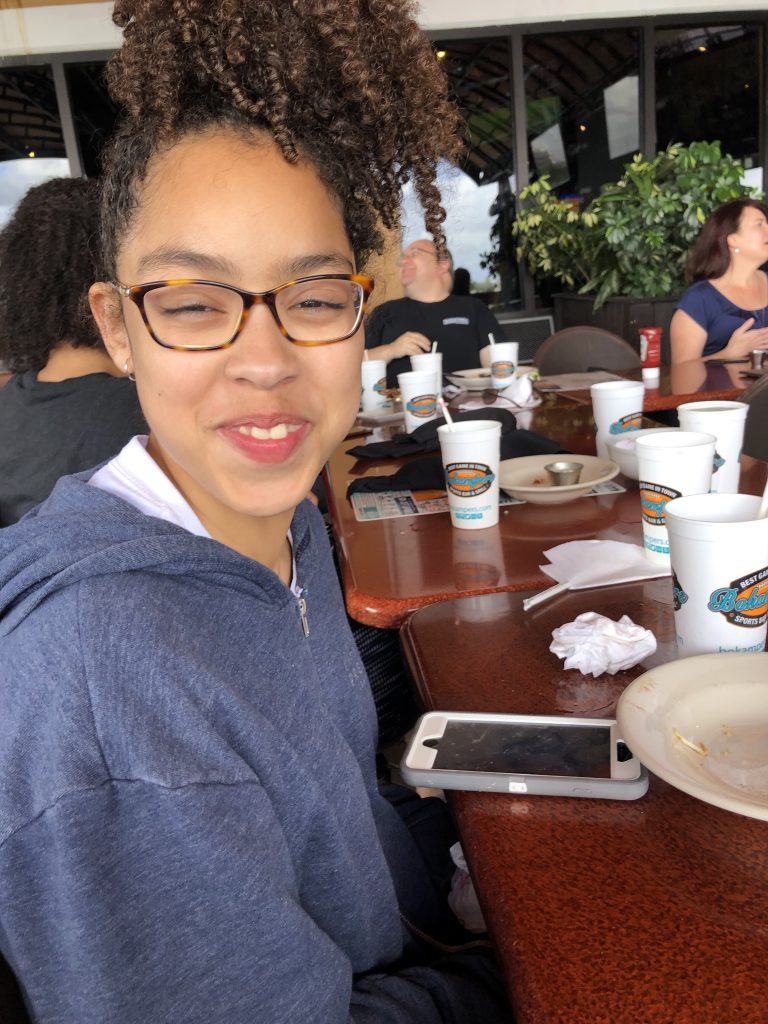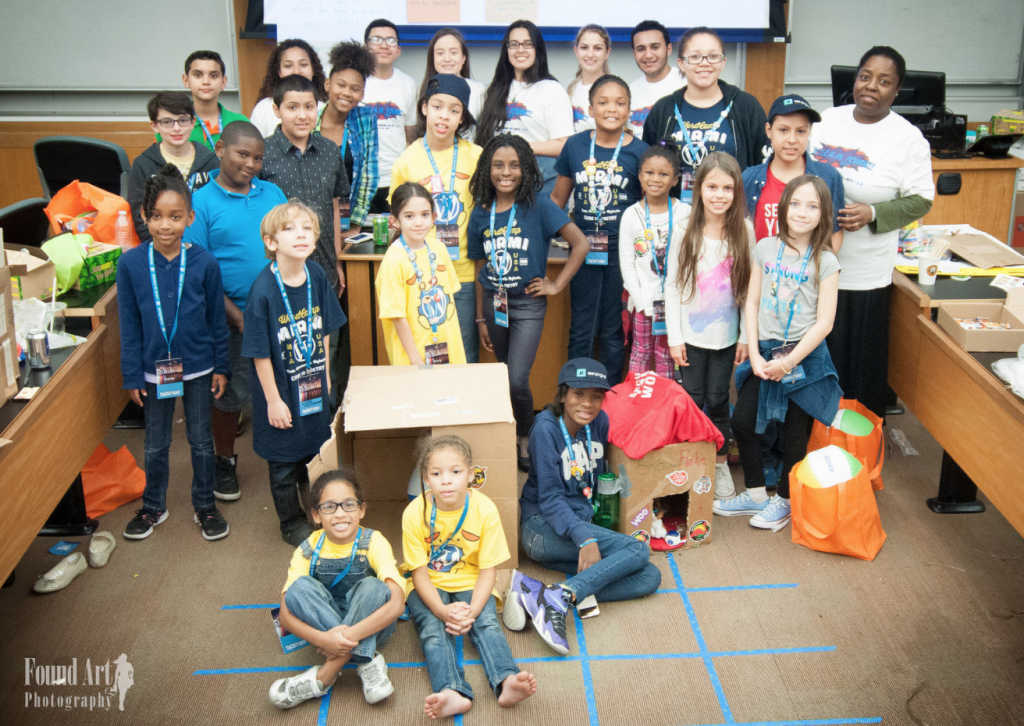As I write this, WordCamp Miami is less than a week away. As an organizer who is been with the team for the past 11 years, I’ve been thinking about this particular year in the back of my mind for a long time. Which is odd, because you would think last year‘s big 10th anniversary with over 1000 attendees (including Matt Mullenweg) would have been still the biggest event in my mind through Miami’s history.

After last year’s big event, and after everyone recovered, the team reflected on our history. We are one of the oldest camps, and one of the few to go on 11 years without missing a year. We gave thought where we started from, where we are now. In many ways (at least in my opinion over that time) it’s not only been successful but rewarding for those involved. But what does a successful conference (and especially a WordCamp) really mean?
Is it the number of attendees? Is it the amount of sponsorship dollars you bring it in? Is it the association that people put with you in the community for having a certain reputation of an event? Is it getting a certain well-known speaker to do your Keynote?
As you read these questions, you probably already know the answer. WordCamps are unique (that is the neutral state of that word) compared to many other tech conferences – no profit margin, speakers are not paid, everything is volunteer-based, primarily focused on the local community, etc. As a result the ticket prices make it affordable and provide a diverse attendance in many cases.
So if it’s not profits or spending money how do you define success? As an organizer sometimes you do these events for so long that question fades and it doesn’t regularly get the time it deserves. So think about it in terms of an attendee – what makes you look back on it event months or years later after you attend something and associate that with positive thoughts? For everyone it’s different but WordCamp Miami believes that it boils down to two main things: meeting new people and learning new things. That sounds like such a basic answer, but in the end it is THAT basic.

And that is what brings me back to WCMIA. In my opinion, we have been focused on the attendee experience and I believe for the most part we have done well. But as we have grown larger (and more shall I say complex in our lineup and logistics) I began to wonder if the focus on meeting new people or learning new things couldn’t be better. Especially so after last year’s anniversary stories: we learned a great deal about how many people got new jobs and new careers and even met business partners and started new companies all because they attended a WordCamp Miami. Very encouraging.
Large conferences – no matter how well they are done – often do not allow easy and organic access to speakers and meeting new people in general. Why do I say that? Well, if you haven’t been to a conference of more than say 800 or 1000 people, especially if it’s in one central location, the number of people in the crowds make meeting someone organically difficult especially for those who are shy and not outgoing. It’s more of trying to be social on a busy subway or baseball stadium.
But even for those that are extroverts so often you are more focused on trying to get to the next track… or when lunch… or trying to find time for the sponsors area… or trying to meet up with people you we’re already going to meet in the first place… coworkers or business partners.
Large conferences can be somewhat intimidating for someone, especially if they are coming alone and they are somewhat new to the WordPress community. They know they want to learn. They know they want to or NEED to make connections… but a large crowd and complex setups make it hard for them to single out people they want to find in a timely manner.
I really don’t think after parties solve networking automatically either, at least not once they get to a certain point in size.

I have honestly been getting that “big but not personal enough” vibe from Miami for the past one or two years. As an organizer you’re happy when you see people coming to an event. But more and more I’m thinking about what makes a successful WordCamp and it comes down to the attendee experience (including safety). While I think every WordCamp Miami has been better than previous, I sometimes look back to our event seven or eight years ago when it was under 300 people and think about how many new connections were made.
So for 2019 one of our intangible goals was to provide a more personal experience for the attendee. This year’s WCMIA will not be as large as the year before. It will be a smaller event. But for the reasons I stayed above, I think this is not only fine but healthy in terms of our venue and the attendee experience. We have so many people coming back to your after year and we want the event to be as fresh as their first time.
So if you are an organizer of any event, but especially a WordCamp, always ask yourself what the best experience is for attendees.
David Bisset (Quoting Himself Apparently)
Most low-quality (and even some high quality) swag will be wasted or stuck in a closet (although I believe there’s nothing wrong with providing memorable physical things that bring joy – and WCMIA has had unique things like Wapuu UNO Cards, Happiness Bars, Wapuu Domino’s… in fact, we had other WordCamp organizers come to Miami just to check out how things are organized which is a great honor).
Over-extravagant “after parties” with overpriced and unnecessary fancy food will be digested and pooped. Unless you eat the bad fish, long term it’s not memorable.
In the end, what makes a successful WordCamp is that feeling months later when you look back and you have a good feeling you invested your time and money and have that great feeling in your heart… as they say.
This year and for 2020, I would like to see Miami continue to focus on education and networking as part of our core experience. Our event started the tradition of tradable speaking cards, for example, and it has been one of our best things we came up with. Also not expensive to print. It’s more ideas like these that help people connect with speakers and encourage conversations and networking at the event. I’ve heard some people say that the speaker cards allowed them to go up to strangers to start a conversation by simply asking what kind of cards they had. Some people got a little crazy though, with one person telling me she was in a restroom stall and someone knocked on the door asking if she had any speaker cards.

This year marks my second year as lead organizer of the event, taking turns with others in the past for two-year cycles per the policies of the WordPress Foundation. Next year, I’m happy to say that there will be brand new lead organizers involved who have actually been involved with the organization at a top level. Those new lead organizers have actually been deeply involved in this year’s event – so you will have a preview in 2019 how the next two years might go.
I think it’s going to be an exciting start of a new decade for the event, as we have already talked about reinventing some things in a more drastic way. Interesting ways. I can’t wait to share them with you if they come to light, but I think the new blood and renewed focus I’ve talked about above will make Miami successful work camp for our community – which book includes both local and worldwide members – a successful one for another decade.
Spoilers: Will the next post I will write might be titled “retirement“?
WOW!!! Watta great post.
As I look forward to my 6th WordCamp Miami – 5th as an organizer – I echo David’s comments about the uniqueness of WCMIA. It has a special sense of Community. Of renewing past acquaintances and welcoming newcomers. All while exchanging information and assistance about how to capitalize on the online environment.
None of which happens by accident.
Every year, I am blown away by the Organizing Team. These kind, caring, and dedicated individuals devote an incredible amount of time and energy over three to four months doing everything possible to see that every attendee has a rewarding weekend experience.
It starts with an assortment of pre-WordCamp workshops that provide a full day of hands-on instruction in the most asked-for topics, and ensure that newbies have a sufficient knowledge of WordPress and websites to make the rest of the weekend productive.
An abundance of signs, strategically placed to direct attendees to the proper venues.
A quick and easy registration process — refined over the years to the point where the first 400 attendees were registered in less than 45 minutes last year.
A badge that shows how many times an attendee has been at WCMIA.
Detailed schedules and maps of workshops, sessions, and parties.
Scores of expert speakers from all over the world who share their knowledge freely with attendees.
An assortment of food to fit everyone’s tastes: bagels & cream cheese, donuts, sandwiches, BBQ, vegetarian fare, cheeros, pies, and not just ice cream — nitrogen-chilled ice cream.
And, a flock of volunteers who dedicate part of their own time attending the event to helping to make the event better for other attendees.
In short, WordCamp Miami always feels to me like a mix of family reunion, educational experience, and party. Likely why I look forward to it every year.
❤️
This is a great post. As a new attendee at WordCamp and very new to WordPress, I am impressed by the outcome of this event. Every one was extremely friendly and the environment felt “warm”. Everything was so organized and thought out so carefully. I enjoyed all of the speakers and meeting new people. I’m still in awe as to how low the ticket prices were! Can’t wait for WCMIA 2020. Thanks!